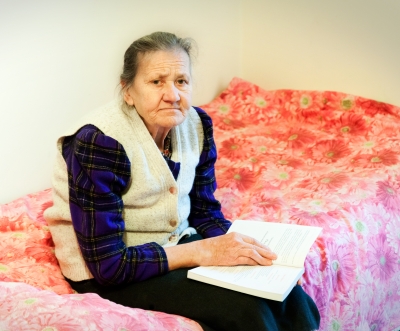The relationship between dementia and loneliness is a complicated one. Some data suggest that people who have strong social support and are socially active are less likely to have dementia symptoms. Once a person starts to experience cognitive deficits, they may begin to withdraw and feel lonely, which can then increase their risk of depression and dementia. “Embarrassment and shame may cause people to avoid social interaction,” says Shawn Herz, MSG, director of programs at the Los Angeles Caregiver Resource Center. Here are some signs that your loved one with dementia may be experiencing loneliness:
• Withdrawal: He or she might be “refusing to see people, and refusing to do anything they used to do,” says Herz.
• Depression: Many people can struggle with depression and dementia, and depression can lead to feelings of loneliness.
• Tears: “You see people crying more often,” observes Herz.
You might feel helpless when you first realize your loved one is experiencing loneliness. However there are some steps that you can take to help them, such as:
• See that your loved one gets depression treatment: If you see your loved one struggling with depression, seek treatment for him or her. This can ease some of the emotional burden he or she might be carrying,
• Visit regularly: If your loved one do not live with you, make a point of visiting him or her on a regular basis. Your presence will make a difference, even if some visits do not go as smoothly as you might hope. You can also make a point of inviting other people to visit with you as well.
• Look into adult day care: “People who have dementia do well in adult day-care settings with trained geriatric care staff,” says Herz. Caregivers are often the ones who are most resistant to these arrangements because they have a hard time visualizing their loved one in day care. “But data shows that regular adult day care attendance can delay nursing home admission,” she says. The activities with other adults can help ease loneliness and give the caregiver a break for a few hours.
• Arrange activities: If your loved one lives in a residential facility, find out about group activities that are available and suitable for the various stages of dementia.
Resource: http://www.everydayhealth.com/alzheimers/the-loneliness-dementia-link.aspx


